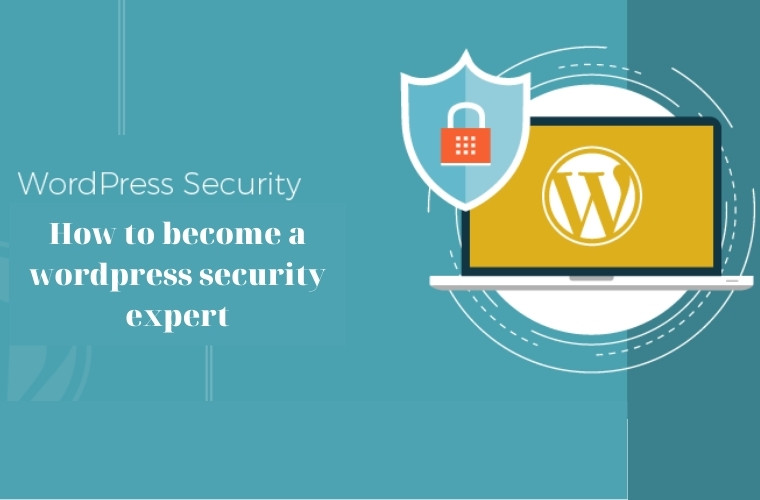Share this article
Get the week's best marketing content
5 tips to become a WordPress Security Expert
WordPress has become one of the most popular content management systems (CMS) for building websites, powering millions of websites worldwide. However, with its widespread use, it has also become a prime target for hackers and malicious actors. This is why WordPress security is of paramount importance for website owners and administrators.
In this article, we will explore 5 essential tips that will help you become a WordPress security expert. By mastering these tips, you can not only protect your website but also help others in securing their WordPress sites. So, let’s dive in and discover the benefits of becoming a WordPress security expert!

Stay Updated with the Latest Security Measures
WordPress has become one of the most popular content management systems (CMS) for building websites, powering millions of WordPress, like any other software, regularly releases updates to address vulnerabilities and enhance security. It is crucial to stay updated with the latest security measures to ensure the safety of your WordPress site. Here’s why:
- Patch Security Vulnerabilities: By staying updated with the latest security measures, you can ensure that any known vulnerabilities are patched, reducing the risk of your site being compromised.
- Stay Protected from Emerging Threats: Cybersecurity threats are constantly evolving, and new vulnerabilities and attack techniques emerge regularly.
- Access to New Security Features: WordPress updates often come with new security features and improvements that can further enhance the security of your website.
- Compatibility with Plugins and Themes: Staying updated with the latest WordPress version ensures compatibility with the latest versions of plugins and themes, reducing the risk of security vulnerabilities due to outdated software.
Learn and Implement Best Practices for Secure Configurations
Configuring your WordPress site securely is essential for protecting it from potential security threats. Here’s how to Learn and Implement Best Practices for Secure Configurations to be like a WordPress security expert:

- Stay informed about the latest WordPress security best practices through reliable sources such as official WordPress documentation, security blogs, and reputable WordPress communities.
- Follow security checklists or guidelines provided by reputable organizations or security experts.
- Regularly review and audit your WordPress site’s configuration settings to ensure they align with best practices.
- Utilize security plugins or tools that offer configuration hardening features or settings.
- Seek professional help or consultation from experienced WordPress security experts to ensure you are implementing the best practices for secure configurations.
Remember, secure configurations are a critical component of overall WordPress security, and investing time and effort in understanding and implementing them can go a long way in safeguarding your website from potential security threats.
Utilize Security Plugins

To use plugins to secure your website as a WordPress security expert, you should utilize one of these security plugins:
- Sucuri: Sucuri is a popular and comprehensive WordPress security plugin that offers a range of features to protect your website from various security threats. Some of its notable features include malware scanning and removal, website firewall, DDoS protection, security notifications, and brute force attack protection.
- iThemes Security Pro: iThemes Security Pro is another powerful WordPress security plugin that provides a wide range of security measures to safeguard your website. It offers features such as malware scanning and removal, brute force attack protection, two-factor authentication, file change detection, and database security.
- Jetpack: Jetpack is a popular all-in-one plugin for WordPress that includes a range of features, including security measures. It offers features such as brute force attack protection, spam filtering, downtime monitoring, and backups. Jetpack also includes a website firewall, malware scanning, and automated fixes for common security issues.
Develop a Strong Password Policy
WordPress security experts always have long passwords so developing a strong password policy is crucial for WordPress security. You can follow these tips:
- Use complex and unique passwords: Encourage the use of complex passwords that are difficult to guess. Passwords should contain a mix of uppercase and lowercase letters, numbers, and special characters.
- Set a minimum password length: Set a minimum password length requirement, typically at least 12 characters. Longer passwords are generally more secure as they are harder to crack through brute force attacks.
- Enforce regular password changes: Encourage users to change their passwords regularly, typically every 90 days.
- Implement two-factor authentication (2FA): Two-Factor Authentication adds an extra layer of security by requiring users to provide an additional piece of information, such as a verification code sent to their mobile device, along with their password. This makes it much harder for hackers to gain unauthorized access even if they manage to crack the password.
- Educate users on password security: Educate all users with access to the WordPress site about the importance of password security. Provide guidelines on how to create and maintain strong passwords and the consequences of using weak passwords.
By implementing a strong password policy, you can significantly enhance the security of your WordPress site and reduce the risk of unauthorized access and potential security breaches. Remember to regularly review and update the password policy as needed to adapt to changing security threats and best practices.
Regularly Conduct Security Audits and Monitoring

Regularly conducting security audits and monitoring your WordPress site is crucial for maintaining a high level of security. Here are some key points to consider when conducting security audits and monitoring:
- Scan for Vulnerabilities: Use security scanning tools and plugins to regularly scan your WordPress site for vulnerabilities, such as outdated software, plugins, themes, or weak passwords. These tools can help identify potential security risks and vulnerabilities that could be exploited by attackers.
- Keep Software Up-to-Date: Ensure that your WordPress core, plugins, themes, and any other software used on your site are regularly updated to the latest versions.
- Monitor User Accounts: Checking for any inactive or unused accounts, removing or disabling accounts that are no longer needed, and ensuring that user roles and permissions are appropriately assigned.
- Backup Regularly: Regularly backup your WordPress site and its data to a secure offsite location.
- Implement Security Hardening Measures: Implement security hardening measures, such as using security plugins, adding additional security layers like firewalls, and configuring server-level security settings to further fortify your WordPress site against potential attacks.
Conclusion
In conclusion, becoming a WordPress security expert requires continuous learning and vigilance in keeping up with the latest security measures and best practices. By implementing the 5 tips discussed in this article – staying updated with the latest security measures, learning and implementing best practices for secure configurations, utilizing security plugins and tools, developing a strong password policy, and conducting regular security audits and monitoring.
So, take action today and start implementing these tips to level up your WordPress security expertise. Your website’s security and the security of others who rely on your expertise will greatly benefit from it.
If you liked this article, then please subscribe to our YouTube Channel for WordPress video tutorials. You can also find us on Twitter and Facebook.



